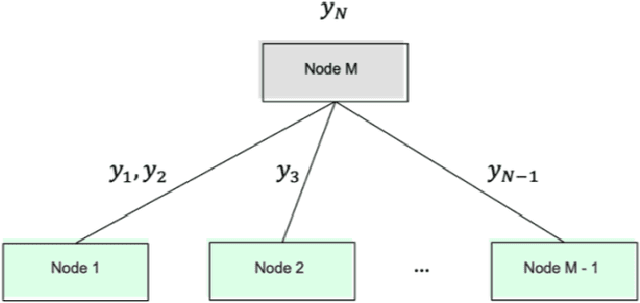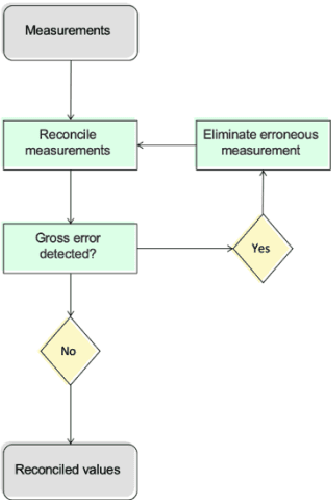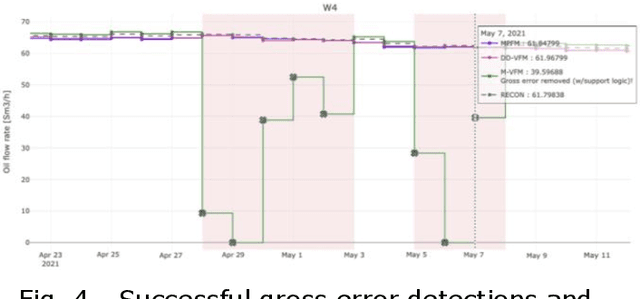Danielle Monteiro
Flow Fusion, Exploiting Measurement Redundancy for Smarter Allocation
Apr 09, 2024



Abstract:In petroleum production systems, continuous multiphase flow rates are essential for efficient operation. They provide situational awareness, enable production optimization, improve reservoir management and planning, and form the basis for allocation. Furthermore, they can be crucial to ensure a fair revenue split between stakeholders for complex production systems where operators share the facilities. Yet, due to complex multiphase flow dynamics and uncertain subsurface fluid properties, the flow rates are challenging to obtain with high accuracy. Consequently, flow rate measurement and estimation solutions, such as multiphase flow meters and virtual flow meters, have different degrees of accuracy and suitability, and impact production decisions and production allocation accordingly. We propose a field-proven, data-driven framework for reconciliation and allocation. With data validation and reconciliation as the theoretical backbone, the solution exploits measurement redundancy to fuse together relevant flow rate information to infer the most likely flow rates in the production system based on quantifiable uncertainties. The framework consists of four modules: data-processing, uncertainty estimation, reconciliation, and gross error detection. The latter, being the focus of this paper, is a means to identify and mitigate the effect of measurements subject to systematic error, which can invalidate the reconciliation. In this paper, we highlight that a combination of statistical tests and supporting logic for gross error detection and elimination can be beneficial in obtaining a more justifiable production allocation. Using the maximum power measurement test, the module can be limited in its ability to pinpoint the erroneous measurement. Yet, it is demonstrated that the detections can be convenient indications of gross errors and where these might reside in the production system.
 Add to Chrome
Add to Chrome Add to Firefox
Add to Firefox Add to Edge
Add to Edge